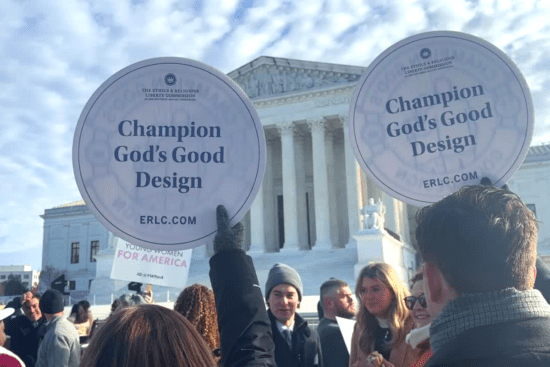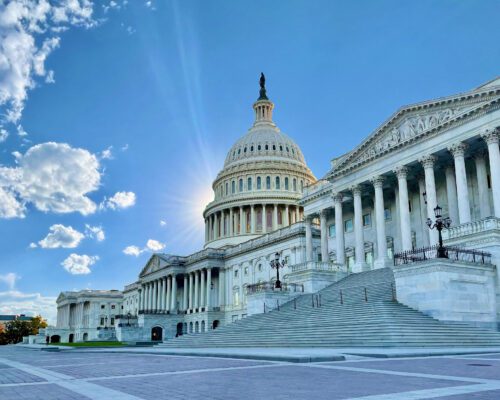One cannot tell the story of religious liberty in America apart from Baptists. From Roger Williams and John Clarke in 17th-century New England to Isaac Backus and John Leland in post-Revolutionary America, Baptists have historically insisted that each individual is accountable to God alone for religious conviction, that conscience is the God-given mechanism through which God guides a person to act on those convictions, and that the state cannot coerce religion.
Baptists and Religious Liberty Advocacy
Based on these beliefs, Baptists have not argued merely for toleration, wherein the state allows objectionable religious beliefs and chooses to restrain punishment, but for full religious liberty, wherein the state has no authority to decree religion whatsoever, leaving such matters to individual conscience. Throughout history, Baptists have recognized religious conviction under the domain of God alone, making religious liberty a God-ordained right and not the prerogative of legislative discretion.
While some have claimed such beliefs derive from the 18th-century Enlightenment, the Baptist witness to religious liberty predates that philosophical movement. Additionally, arguments for religious liberty can be located all the way back to the Patristic era of the Church.1See, Robert Louis Wilken, Liberty in the Things of God: The Christian Origins of Religious Freedom (New Haven and London: Yale University Press, 2019). If anything, Enlightenment theorists drew inspiration from the Baptist struggle.
The Baptist argument for religious liberty stems primarily from Baptist covenant theology that prioritizes the new covenant in Christ as the high point of biblical revelation. Baptists insist on religious liberty for the same reason we insist on believer’s baptism—each covenant member must be born of the Spirit from above (John 3:1–8). Neither parents nor the state can enforce that supernatural transaction, and attempts at coercion lead to false professions of faith, which mars the witness of the Church.
Baptists have therefore maintained that government rightly functions when it allows all religious expression to operate freely without interference. In such a context, only the Church wields weapons of warfare capable of destroying strongholds (2 Cor. 10:4).
The Future Of Religious Liberty Advocacy
Since its inception in 1845, the Southern Baptist Convention has hardly wavered in its commitment to religious liberty for all. Before 1990 the SBC’s public policy goals were split between the Baptist Joint Commission, which specialized in religious liberty concerns, and the Christian Life Commission, which advocated for biblical ethics on behalf of Southern Baptists. However, since the early 1990s, both aims have been carried forward under the mission of the Ethics and Religious Liberty Commission (ERLC).
However, each new generation presents its own unique challenges to biblical orthodoxy and ethics because the forces of evil never rest in their attempt to undermine God’s purposes. Religious liberty, enjoyed in the United States since 1833 when Massachusetts became the last state to disestablish religion, has only persisted in the face of innumerable challenges thanks to unwavering advocacy in courtrooms and in the broader culture.
Challenges Over the Last Century
Over the past century, challenges to religious liberty have typically come from the cultural Left as opponents have sought to contest traditional religious expression in the courts. Many have misread the U.S. Constitution’s establishment clause as a ban on religion from the public square. However, the establishment clause does not ban religious people from policy debates or forbid the state from legislating policies that are in accordance with biblical values. Instead, America’s founding generation sought to ensure that the U.S. never establish religion by law, leaving each citizen free to follow his or her own conscience.
As Richard John Neuhaus observed nearly four decades ago, there’s no such thing as a truly “naked” public square. He insightfully observed, “When recognizable religion is excluded, the vacuum will be filled by ersatz religion, by religion bootlegged into public space under other names.”2Richard John Neuhaus, The Naked Public Square: Religion and Democracy in America (Grand Rapids: William B. Eerdmans Publishing Company, 1984), 80. Challenges to free expression of religion are often subtle attempts to institute various secular orthodoxies in their place. The ERLC has typically needed to defend the establishment clause on the one hand while fighting for the right of citizens to freely practice and express their faith in the public square on the other.
These kinds of challenges will inevitably persist as the culture’s ideology continues to trend away from biblical orthodoxy, and the importance of the ERLC’s mission will only increase against the emboldened secular Left.
A New Source of Challenge to Religious Liberty
However, a new battlefront is forming for Christian advocates of religious liberty, and the source of opposition may be surprising to some. As culture drifts radically leftward, many Evangelicals are attacking the idea of religious liberty from the other side. This group wants to put new covenant wine into old covenant wineskins by linking the mission of God to the secular state. The continual secularization of American culture proves, they argue, that the American project of recognizing universal liberty of conscience has failed. Some hope for government assistance to bolster the Church’s mission and boost her power.
Here’s the question the SBC will need to ask as we turn toward the future: As we depend on the state to fulfill its God-given mandate of upholding justice and order in society, do we really want to tie the Church’s mission to political power?
Why are we so mesmerized by the prospect of defeating our political enemies to win a culture war when we already follow the One who reigns “above all rule and authority and power and dominion” (Eph. 1:21)? The cry to abandon religious liberty reveals a crisis of confidence in the Spirit-filled Church’s ability to fulfill its Christ-given mission and stands in stark contrast to the foundational Baptist belief of “soul freedom.”
Many of our Baptist predecessors longed for religious liberty because they were confident that, freed to preach the gospel, churches would convert people from every nation to Christ. They saw the folly of showing up to wrestle “the spiritual forces of evil in the heavenly places” (Eph. 6:12) by wielding the impotent sword of the state, and, instead, doubled down on preaching, sending missionaries, and loving their neighbors by fighting for justice in the name of Christ.3See, Aaron Menikoff, Politics and Piety: Baptist Social Reform in America, 1770–1860 (Eugene: Pickwick, 2014).
They looked at a world run by government-established churches and saw a lack of spiritual vitality often resulting from abandonment of the gospel in favor of temporal power. They understood the qualitative difference between the self-sacrificial service that characterizes Christ’s Kingdom and the lord-it-over-you oppression of Gentile rulers (Mark 10:35–45).
Baptists have often responded to loss of cultural power by rallying behind the triumphant power of the cross.
So, instead of giving in to fear amidst the uncertainty of our day and looking to the state for answers, Baptists should look to their forebearers. These men and women rightly distrusted the ability of the state to accomplish lasting spiritual good and instead united behind the apostles in pursuit of the Church’s disciple-making mission. May we do the same, looking forward to the day our King returns to judge and to rule (Matt. 28:18-20).
In this vein, may the ERLC continue to persistently remind Southern Baptists of the gospel’s power, even as it continues to lead the way in contending for justice and universal human flourishing in service to the advancement of God’s Kingdom.










